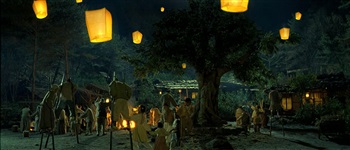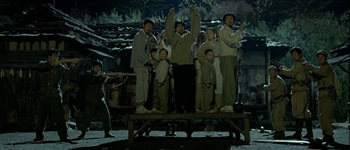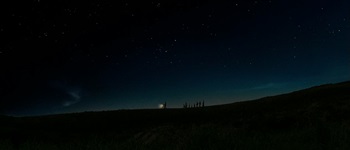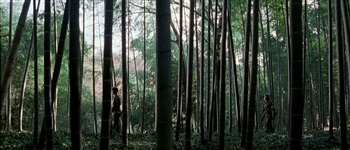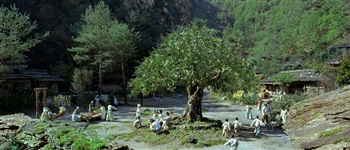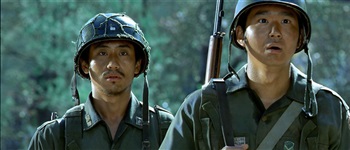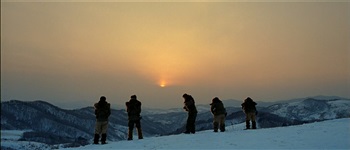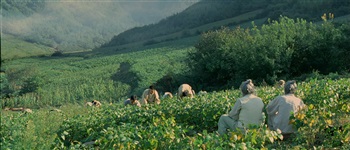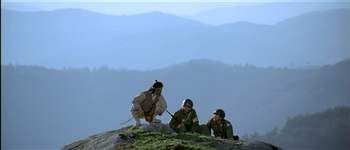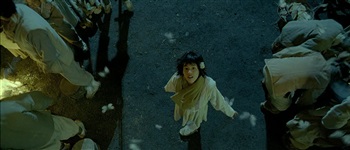Welcome To Dongmakgol (2005)
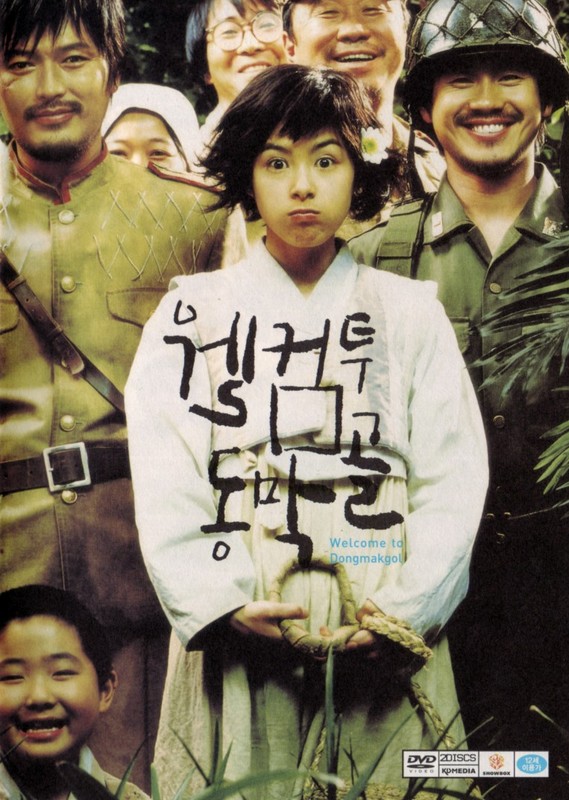
In 1950 the Korean civil war is in full swing when an American pilot and a handful of soldiers from the North
and the South end up in a remote mountain village where the locals haven't even heard of the war... or any war, by the look of it. Tensions flare up immediately, but the villagers general lack of anxiety and more pragmatic concerns about the harvest gradually make them realise they have no real reason to hate or fear each other.
WELCOME TO DONGMAKGOL was the surprise hit of 2005. Director Park Kwang-hyun had only 1/3rd of a film to his name previously but directs like a veteran. The script was based on a long running stage play by Jang Jin, who cowrote the screenplay, and its stage origins do come across in the characterisation and dialogue but they are married to a visual style that is pure cinema.
The mountain scenery and the peaceful village at its heart make for a stunning setting, and the cinematography is drop dead gorgeous - rich, bold colours and crisp textures create a hyper-real look, fantastical and somewhat magical.
The film is an ensemble piece but is anchored by Kang Hye-Jung as a developmentally challenged girl whose innocence and wonder cast the violence and cynicism of the war into sharp relief. She isn't actually all that central to the plot but she drifts into or crashes through scenes and often turns the course of events with her infectious smile and joie de vivre.
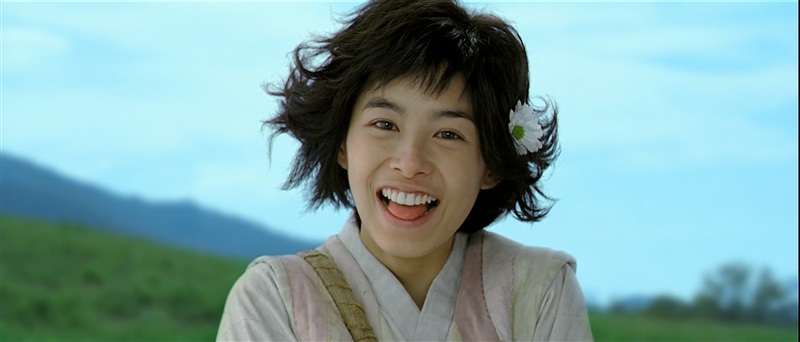
Jung Jae-Young and Shin Ha-Kyun play the leaders of the North and South factions respectively and do a great job of showing how similar these men are despite being on opposite sides, and of communicating the dehumanising effect of combat and the deep pain inflicted by war on a soldier - whether on the losing side or the winning. Neither North nor South is portrayed as good or bad here, but American involvement in the conflict is not depicted favourably - even there, the American pilot is a human face who receives the film's sympathy and forgiveness too.
WELCOME TO DONGMAKGOL is a comedy, but one that packs a punch - something that is communicated in the opening scenes, which pull some impressive tonal G-forces. It's a warning not to get too comfortable... there is a war going on, after all. It is one of the most effective anti-war films I've seen, showing the absurdity and tragedy of sending young men to kill each other, but without taking a simplistic view by denying that it is ever necessary. The ending is powerful for precisely that reason, and devastating because of it.
The film covers a pretty broad range of emotions, love and hate, fear and bravery, comedy and tragedy, excitement and calm... there's a generous sample of the human experience packed into 130 minutes. I'm surprised it didn't earn a place in the KoreanScreen.com 100 greatest Korean films - I'd say it belongs in the top 50 (also that everybody that voted needs to go back and watch My Sassy Girl again). Wonderful cinema.
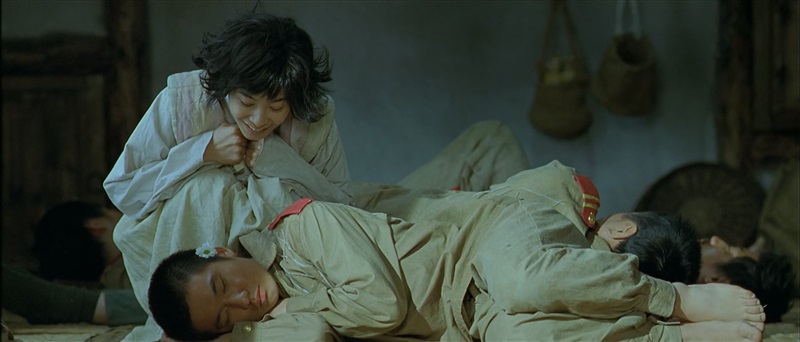
Crew
| Director | |
|---|---|
| Writer | |
| Producer | |
| Cinematographer |
